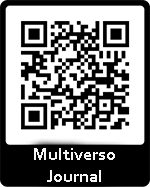Voices around critical reading. A practice inherent to the development of thinking and meaningful learning in the university
DOI:
https://doi.org/10.46502/issn.2792-3681/2025.8.3Keywords:
critical reading, thinking, meaningful learning, higher education, scientific knowledgeAbstract
Critical reading as a process at the service of meaningful learning in the university, constitutes a way to deepen the scientific knowledge produced by academic communities. This research, as a result of a documentary review, seeks to integrate the voices of several authors, assumed as referents for the construction of a conceptual and operative approach to critical reading, which is understood as a way of developing thinking to dive deeply into knowledge, in the search for solid reasoning, approaches based on reliable and trustworthy data, as well as fallacious positions that in their contents try to reproduce erroneous interpretations. As a result of relating the theoretical references on critical reading, a series of questions are proposed that the teacher in his daily pedagogical praxis can involve, with the purpose of forming autonomous readers, critically, analytically and reflexively competent to enter the core arguments, the implicit and explicit ideas. It is concluded that achieving significant learning and the operative development of thought depends on deep, rigorous and sensitive dialogue, on the intense search for truth and on questioning the consistency of the arguments on which scientific pronouncements are based.
References
Ausubel, D., Novak, J., & Hanesian, H. (2009). Psicología Educativa. Un punto de vista cognoscitivo. Barcelona: Editorial Trillas.
Carr, W. (1999). Una teoría para la educación. Hacia una investigación educativa crítica. Madrid: Ediciones Morata.
Cassany, D. (2021). El arte de dar clase. Barcelona: Editorial Anagrama.
Daros, W. (2009). Teoría del aprendizaje reflexivo. Buenos Aires: Editorial RICE.
Delors, J. (2000). La educación encierra un tesoro. Bogotá: Ediciones Santillana-UNESCO.
Hooks, B. (2022). Enseñar pensamiento crítico. Barcelona: Rayo Verde Editorial.
Horkheimer, M. (1974). Teoría crítica. Madrid: Amorrurtu.
Kemmis, S. (1993). El currículum: más allá de una teoría de la reproducción. Madrid: Ediciones Morata.
Lipman, M., & Gazard, A. (2001). Poner en orden los pensamientos. Madrid: Ediciones de la Torre.
Lipman, M. (1998). Pensamiento y educación. Madrid: Ediciones La Torre.
Morales, J. (2021). Lectura crítica e investigación. Aportaciones de Hugo Zemelman al Aprendizaje en la Universidad. Revista Latinoamericana de Difusión Científica, 4(6), 94-121. https://doi.org/10.38186/difcie.46.07
Morales, J. (2023a). Lectura e investigación en Matthew Lipman. Prácticas al servicio del aprendizaje en la educación del siglo XXI. Yachay Revista Científico Cultural, 12(1), 58-64. https://doi.org/10.36881/yachay.v12i1.672
Morales, J. (2023b). Modos de pensamiento. Un desafío de los procesos de enseñanza-aprendizaje en la actualidad. Dissertare Revista de Investigación en Ciencias Sociales, 7(2), 1-20. https://doi.org/10.5281/zenodo.7634280
Morín, E. (1999). Los siete saberes necesarios para la educación del futuro. Paris: UNESCO.
Morín, E. (2009). Introducción al pensamiento complejo. Buenos Aires: Editorial Gedisa.
Savater, F. (2008). La aventura de pensar. Barcelona: Random House Mondadori, S. A.
Zemelman, H. (1994). Pensar teórico y pensar epistémico: los retos de las ciencias sociales latinoamericanas. México DF: Instituto Pensamiento y Cultura en América A. C.
Zemelman, H. (2005). Voluntad de conocer. Barcelona: Anthropos.
Zemelman, H. (2015). Pensamiento y construcción de conocimiento histórico una exigencia para el hacer futuro. Revista El Agora USB, 15(2), 343-362. https://nbn-resolving.org/urn:nbn:de:0168-ssoar-462691
Published
How to Cite
Issue
Section
License
Copyright (c) 2025 Jesús Alfredo Morales Carrero

This work is licensed under a Creative Commons Attribution 4.0 International License.
The authors who publish in this journal agree to the following terms:
The authors retain copyright and guarantee the journal the right to be the first publication where the article is presented, which is published under a Creative Commons Attribution License, which allows others to share the work prior to acknowledgment of the authorship of the article. work and initial publication in this journal.
Authors may separately enter into additional agreements for non-exclusive distribution of the version of the work published in the journal (for example, placing it in an institutional repository or publishing it in a book), with an acknowledgment of its initial publication in this journal.



















